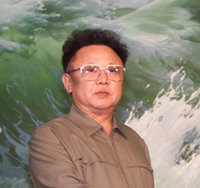Last week, WPR's Judah Grunstein noted some interesting developments in Russia-Korea relations. These included North Korean leader Kim Jong Il's conferring with President Dmitry Medvedev and other Russian leaders in a rare visit to Russia in August; the signing of a Memorandum of Understanding regarding construction of a gas pipeline connecting Russia to South Korea via North Korea; the launching of a rail link between Russia and the North Korean port of Rajin; and plans to conduct a joint maritime search-and-rescue exercise in 2012.
These developments have highlighted Moscow's desire to play a major role in the future of the Democratic People's Republic of Korea (DPRK), the Korean Peninsula and the East Asian region. They also underscore the limits of Moscow's influence.
Grunstein correctly implied that, in themselves, these developments are neither good nor bad for the United States. The additional revenue could help bolster the current DPRK regime during a controversial and possibly contested leadership transition. The boosted support could also make Pyongyang more confident about conducting new provocations against the South, or it could reassure the North Korean regime that it can surmount its current problems.

